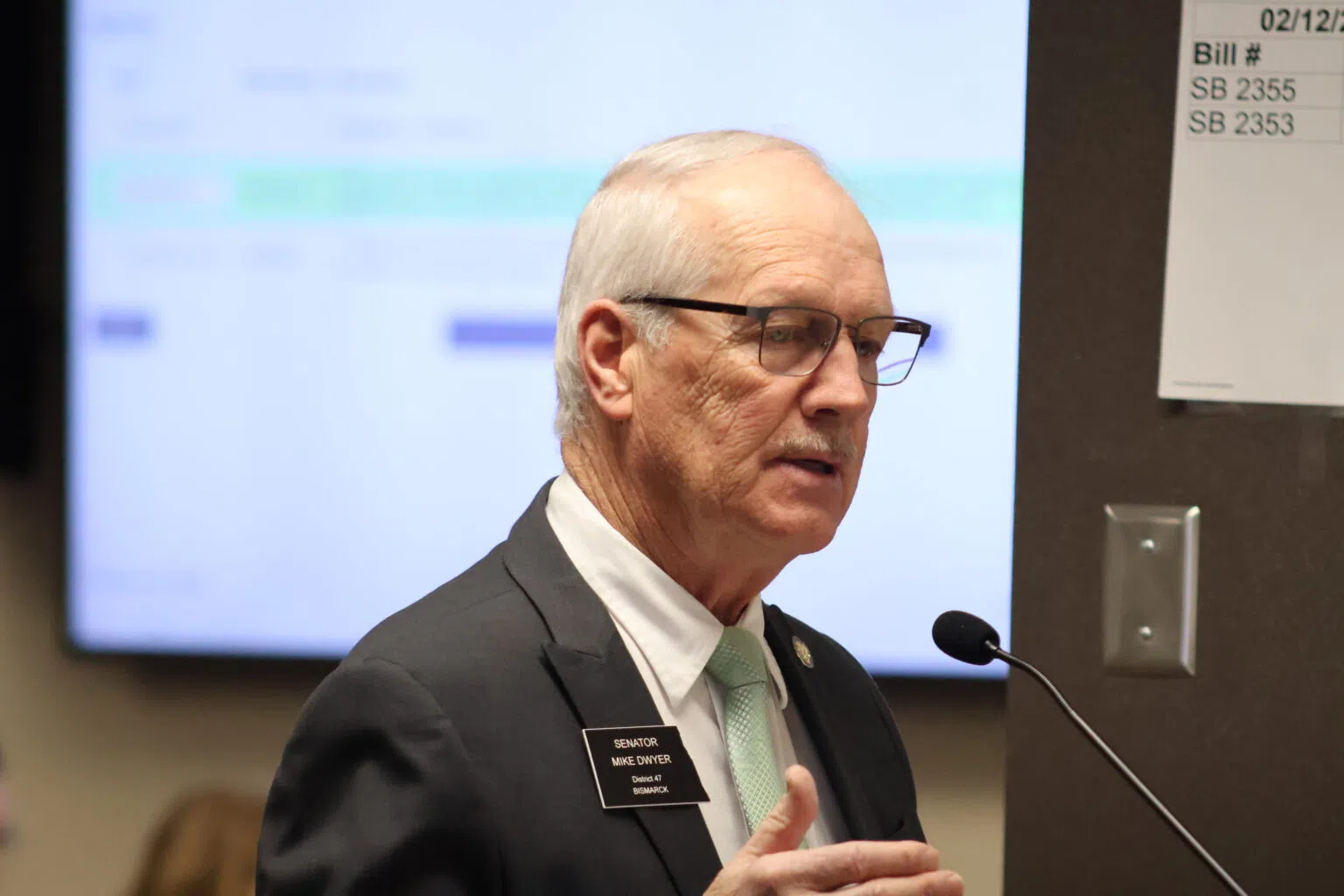
Sen. Mike Dwyer, R-Bismarck, speaks at a Feb. 12, 2025, meeting in support of his bill to allow public school science teachers to teach intelligent design. (Mary Steurer/North Dakota Monitor)
BISMARCK (North Dakota Monitor) – A bill to allow science teachers to teach intelligent design narrowly failed in the Senate on Monday morning.
The proposal, Senate Bill 2355, would have required the Department of Public Instruction to include the theory — which holds that the idea that the universe was made by an intelligent being — in state the standards for elementary, middle school and high school science classes.
Sen. Terry Wanzek, R-Jamestown, said the Senate Education Committee did not back the bill due to concerns that teaching intelligent design in school would be “inadvertently promoting the idea that faith and science are opposed.”
“It should be noted that these concerns came from both proponents and opponents of an intelligent design theory,” Wanzek said.
Sen. Michael Dwyer, R-Bismarck, is the bill’s primary sponsor. He said if teachers can’t teach intelligent design the classroom, they shouldn’t be able to teach evolution, either.
He pointed to the Declaration of Independence’s assertion that “all men are created equal” and “endowed by their creator with certain unalienable rights.”
“If there’s no creator, where did those rights come from?” Dwyer asked the chamber.
House Majority Leader Mike Lefor, R-Dickinson, and Senate Majority Leader David Hogue, R-Minot, also sponsored the bill.
The Senate voted 25-22 against the proposal.
In committee testimony, opponents of the bill also said it could violate the First Amendment, which forbids the government from establishing a state religion.
The bill was part of a group of proposals related to religion and public schools.
Earlier this month, a bill that would have allowed school boards to employ chaplains in public schools failed in the House, with lawmakers voting against the measure on a 46-35 vote.
House Bill 1456, sponsored by Rep. SuAnn Olson, R-Baldwin, would have allowed volunteer or employed chaplains to provide support services and programs to students, staff members or parental guardians in the district. Chaplains can already volunteer at schools.
During floor debate, Olson said she believes chaplain services are linked to improved mental health in school communities.
As with the intelligent design bill, some opponents of the chaplains bill argued it could violate the First Amendment by promoting religion in public school. Opponents also pointed out that chaplains would not be required to be certified by the Education Standards and Practices Board, and therefore would have limited oversight.
Also this month, the House voted against a bill that sought to mandate displaying the Ten Commandments in public schools and state college campuses.




Comments